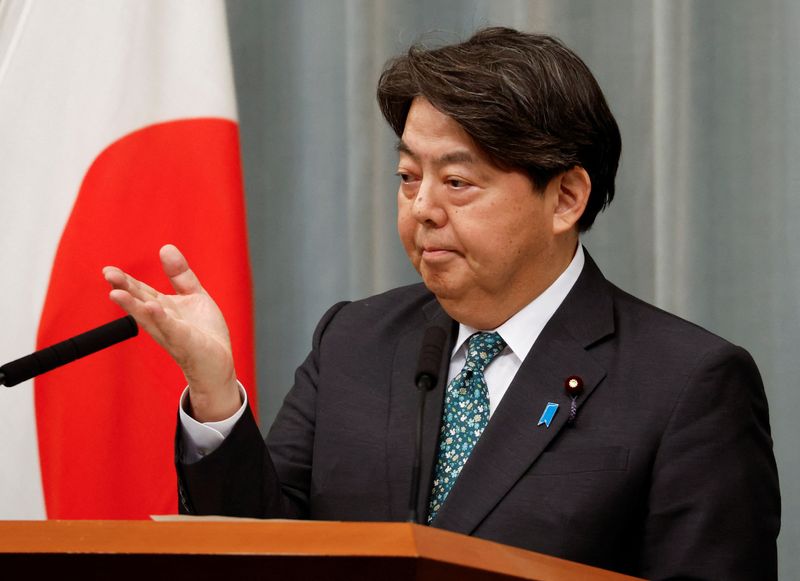By Kentaro Sugiyama and Makiko Yamazaki
TOKYO (Reuters) – Japanese Chief Cabinet Secretary Yoshimasa Hayashi said on Tuesday authorities would respond appropriately to excessive currency volatility, in a fresh warning as the yen weakens towards to the key 160 per dollar level.
Hayashi, the top government, spokesperson told reporters excessive volatility in foreign exchange is undesirable as it negatively affects business and household demand.
“We are closely watching currency moves and will respond appropriately to excessive volatility,” he said.
His comments follow a steady drum beat of warnings from officials against wild swings in the currency in recent days amid heightened political focus on the hit to the economy from the weak yen.
Earlier on Tuesday, Finance Minister Shunichi Suzuki told broadcaster TBS that currency rates needed to be stable and reflect economic fundamentals.
“We would respond appropriately to excessive currency moves,” he said, a view he reiterated in Seoul after attending a bilateral meeting with his South Korean counterpart on Tuesday.
The battered yen languished near the 160 per dollar level on Tuesday, close to a 34-year trough of 160.245 that prompted a 9.79 trillion yen ($61.33 billion) currency intervention from Tokyo in late April and early May.
While government officials have declined to comment on whether current market moves are excessive, traders are on high alert for any intervention from authorities.
The yen has been under pressure since the Bank of Japan this month disappointed investors by not reducing its massive bond purchases, as some had expected.
In a separate press conference on Tuesday, the chairman of the powerful Keidanren business lobby, Masakazu Tokura, said currency interventions can be effective to a certain extent.

“The last interventions (in April and May) reflected the government’s resolve to prevent the yen from falling below 160 per dollar,” he said.
Tokura also said that U.S.-Japan interest rate differentials are likely to narrow down eventually as moderate inflation in Japan would lead to a policy rate hike and slowing inflation in the United States would result in a rate cut. “In that sense, I believe that the differential is at the peak now,” he added.


